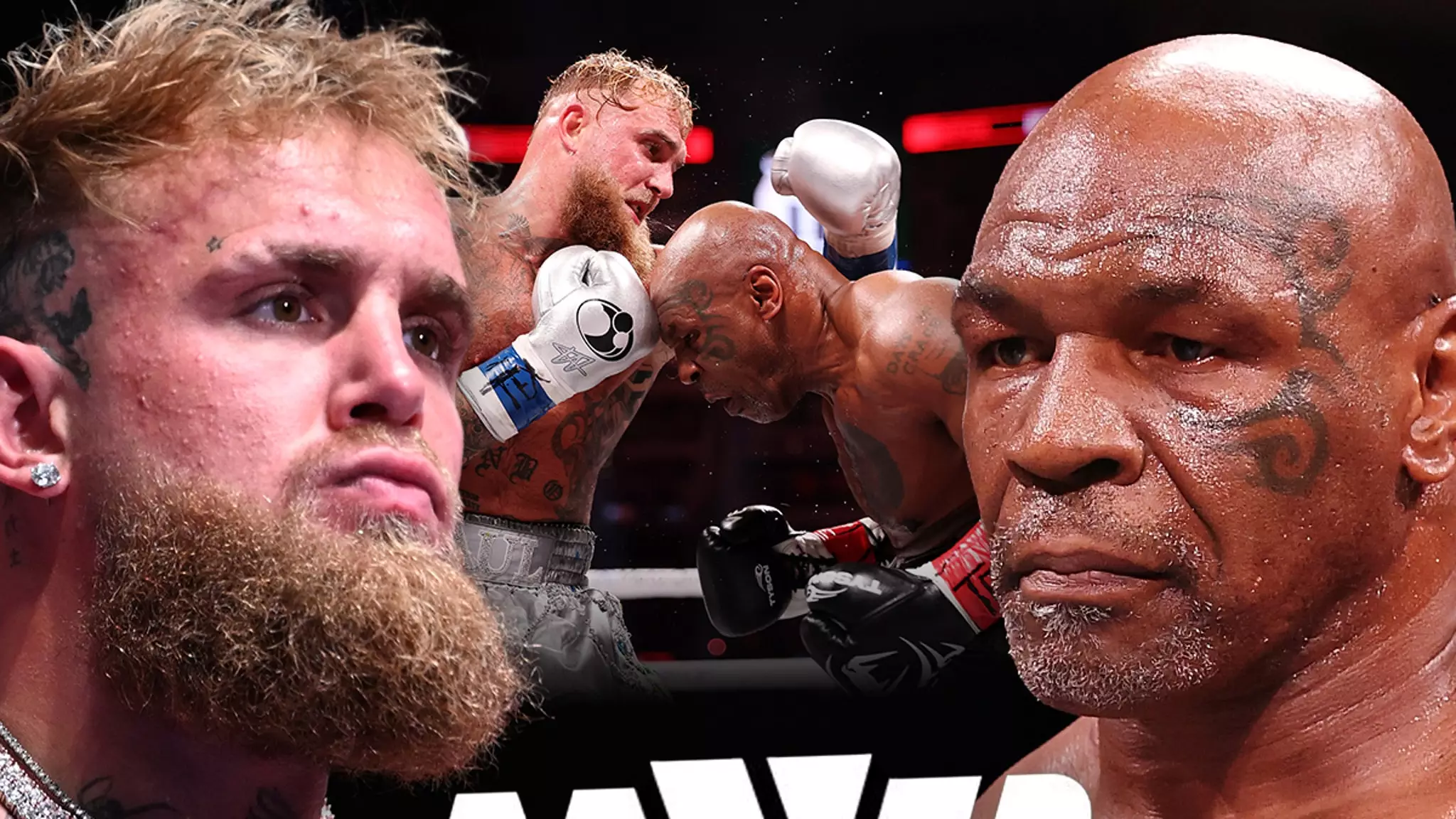Jake Paul, the internet sensation turned professional boxer, recently stirred a maelstrom of controversy following his unanimous decision victory over boxing icon Mike Tyson. His promotion company, Most Valuable Promotions (MVP), has taken a firm stand in the face of mounting skepticism regarding the authenticity of this match. The criticisms declare that Paul, a 27-year-old YouTuber, waned Tyson, a 58-year-old boxing legend, through dubious means, but MVP’s rebuttal is a lengthy and thorough defense of the fight’s legitimacy.
The victory of Jake Paul over Mike Tyson was met with incredulity from fans and critics alike. Many claimed that Tyson, one of the sport’s greats, must have “pulled punches” to allow his younger opponent to secure a win. This theory suggested that Tyson intentionally underperformed, perhaps to orchestrate a financially advantageous scenario. Such skepticism highlights a pervasive doubt among traditional boxing aficionados who find it challenging to reconcile Paul’s rapid ascent in the sport with credibility. The narrative suggests an overwhelming disbelief that a newcomer to boxing could truly triumph over a seasoned veteran.
MVP responded with a passionate statement aimed at dismantling these unfounded theories. They highlighted the legal implications of a rigged match, pointing out that such an act would constitute a federal offense. The Texas Department of Licensing and Regulation formally sanctioned the bout, ensuring compliance with all legal and regulatory standards. The promotion stated that there were “absolutely no restrictions, contractual or otherwise,” on either fighter’s performance, emphasizing that Tyson and Paul executed their fighting strategies without undue influence.
Defending the Integrity of the Sport
The pushback from MVP wasn’t merely aimed at defending Jake Paul; it attempted to uphold the integrity of boxing itself. The promotion described the widespread criticism as “naive” and an affront to both Tyson’s and Paul’s reputations. This framing not only pushes back against the dismissal of Paul’s victory as a fluke, but also calls into question the very skepticism that surrounds modern boxing in the age of social media and celebrity influence.
MVP co-founder Nakisa Bidarian’s statements further bolster this defense, as he articulated the challenges Paul has faced in earning the respect of seasoned boxing circles. Throughout his career, Paul has been subjected to critiques doubting his skills and attributing his success to his online fame rather than athletic ability. While these criticisms may have been dismissed as naive, they reveal a troubling undercurrent within the boxing community that continues to grapple with the implications of the sport’s evolving popularity landscape.
In light of the controversy surrounding Paul’s latest match, it is worth noting the records that were shattered during the bout. MVP proudly pointed out how the event attracted massive viewership and broke attendance records, marking significant milestones for both the promotion and the sport as a whole. Such achievements could not be ignored, signaling that Paul not only draws in a crowd but also offers a fresh perspective to boxing that transcends the rigid confines of traditional expectations.
The fact that Paul continues to defy critics by attracting unprecedented attention to the sport speaks to a broader trend in boxing. The merging of entertainment and sport—something that had once been viewed as problematic—is now becoming an essential element in revitalizing the boxing industry. Paul’s ability to reach and engage with younger audiences through his unconventional background fortifies the argument that his involvement in boxing could potentially lead to a reinvigorated interest in the sport.
A Future Beyond the Skeptics
It is clear that the narrative around Jake Paul’s recent victory over Mike Tyson will continue to spark debates among boxing enthusiasts. However, as MVP articulated, this skepticism is not a new phenomenon in Paul’s trajectory; it has been a companion since his entry into the sport. What remains undeniable is the momentum that Paul carries forward in his boxing career. As he continues to challenge conventions and attract viewership, it is vital to recognize that doubt may only fuel his innovative approach to boxing.
As Paul breaks down barriers and sets records, it becomes imperative for boxing traditionalists to embrace the new landscape he is helping to shape. While skepticism can drive deeper analysis and understanding of the sport’s intricate dynamics, it is crucial to acknowledge the changing tide in boxing, where success may not always align with traditional norms. The dialogue surrounding Paul’s legitimacy as a boxer is far from black-and-white—his ongoing ability to engage audiences could be a harbinger of a new era in professional boxing.

